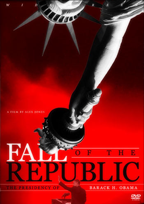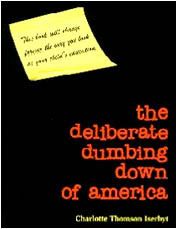Declan McCullagh
(www.cnet.com)
October 30, 2012
In latest case to test how technological developments alter Americans' privacy, federal court sides with Justice Department on police use of concealed surveillance cameras on private property.
Police are allowed in some circumstances to install hidden surveillance cameras on private property without obtaining a search warrant, a federal judge said yesterday.
CNET has learned that U.S. District Judge William Griesbach ruled that it was reasonable for Drug Enforcement Administration agents to enter rural property without permission -- and without a warrant -- to install multiple "covert digital surveillance cameras" in hopes of uncovering evidence that 30 to 40 marijuana plants were being grown.
This is the latest case to highlight how advances in technology are causing the legal system to rethink how Americans' privacy rights are protected by law. In January, the Supreme Court rejected warrantless GPS tracking after previously rejecting warrantless thermal imaging, but it has not yet ruled on warrantless cell phone tracking or warrantless use of surveillance cameras placed on private property without permission.
Yesterday Griesbach adopted a recommendation by U.S. Magistrate Judge William Callahan dated October 9. That recommendation said that the DEA's warrantless surveillance did not violate the Fourth Amendment, which prohibits unreasonable searches and requires that warrants describe the place that's being searched.
"The Supreme Court has upheld the use of technology as a substitute for ordinary police surveillance," Callahan wrote.
Two defendants in the case, Manuel Mendoza and Marco Magana of Green Bay, Wis., have been charged with federal drug crimes after DEA agent Steven Curran claimed to have discovered more than 1,000 marijuana plants grown on the property, and face possible life imprisonment and fines of up to $10 million. Mendoza and Magana asked Callahan to throw out the video evidence on Fourth Amendment grounds, noting that "No Trespassing" signs were posted throughout the heavily wooded, 22-acre property owned by Magana and that it also had a locked gate.

(Credit: U.S. Department of Justice)
U.S. Attorney James Santelle, who argued that warrantless surveillance cameras on private property "does not violate the Fourth Amendment."
Callahan based his reasoning on a 1984 Supreme Court case called Oliver v. United States, in which a majority of the justices said that "open fields" could be searched without warrants because they're not covered by the Fourth Amendment. What lawyers call "curtilage," on the other hand, meaning the land immediately surrounding a residence, still has greater privacy protections.
"Placing a video camera in a location that allows law enforcement to record activities outside of a home and beyond protected curtilage does not violate the Fourth Amendment," Justice Department prosecutors James Santelle and William Lipscomb told Callahan.
As digital sensors become cheaper and wireless connections become more powerful, the Justice Department's argument would allow police to install cameras on private property without court oversight -- subject only to budgetary limits and political pressure.
About four days after the DEA's warrantless installation of surveillance cameras, a magistrate judge did subsequently grant a warrant. But attorneys for Mendoza and Magana noticed that the surveillance took place before the warrant was granted.
"That one's actions could be recorded on their own property, even if the property is not within the curtilage, is contrary to society's concept of privacy," wrote Brett Reetz, Magana's attorney, in a legal filing last month. "The owner and his guest... had reason to believe that their activities on the property were not subject to video surveillance as it would constitute a violation of privacy."
A jury trial has been scheduled for January 22.










